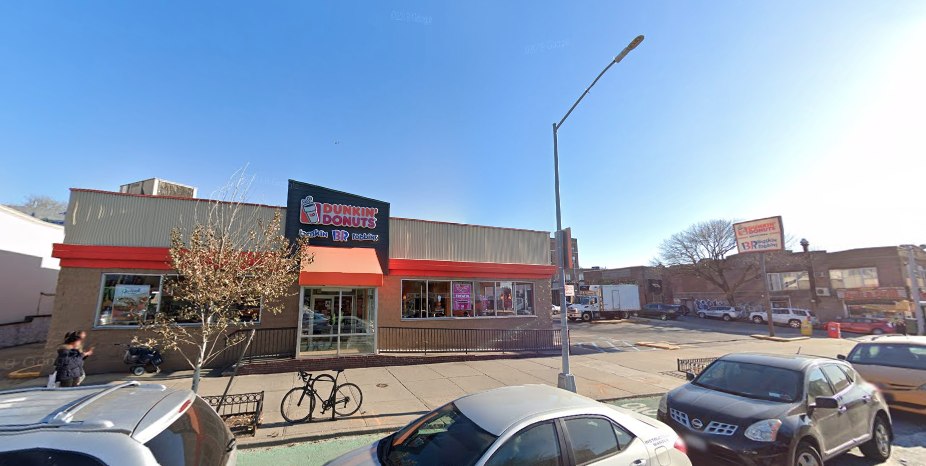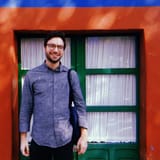14-Story Apartment Complex on Sunset Park’s Fourth Avenue Will Be Developed


Council Member Carlos Menchaca announced his support Tuesday morning for a controversial spot-rezoning that would allow for the creation of a 14-story mixed-use building at 737 Fourth Avenue in Sunset Park.
Menchaca’s announcement came in advance of a vote on the rezoning by the City Council’s Subcommittee on Zoning and Franchises, whose seven members voted unanimously in support. Menchaca’s backing means the project will almost certainly receive final approval by the full City Council and Mayor Bill de Blasio.
The proposal from developer, Totem, calls for a 108,119-square-foot building at the site of what is currently a single-story Dunkin Donuts and a parking lot. The planned building will include 134 apartments, 33 of which will be below-market rate.
Totem has committed to renting those units at rates affordable to residents earning an average of 46% of area median income (AMI), or about $45,000 for a family of three. About 13 of those affordable units will be priced for households making 30% AMI, or just over $30,000 for a family of three. The project also includes about 8,500-square-feet of ground-floor retail space.
“The proposal is not perfect,” Menchaca said in a statement announcing his support for the rezoning. “It will not, for instance, build 100% affordable units, which I believe we need to build in our City.”
“But it does represent the clearest example yet of the only thing that will break and reverse the cycle of displacement and gentrification forever – community-driven and accountable development.”
The affordable housing set-asides were negotiated as part of a Community Benefits Agreement (CBA) between Totem and several local community organizations led by the nonprofit Fifth Avenue Committee.

The agreement also obliges Totem to pay for an easement that would enable the MTA to build an ADA-accessible elevator at the nearby 25th Street subway station, and to provide publicly-accessible bike parking. Other commitments include a 900-square-foot set-aside for “pop-up incubator” retail space, a 35% local hiring commitment during construction, and green infrastructure investments like bioswales in adjacent sidewalks and a green roof.
At the request of Brooklyn Community Board 7, Totem also committed not to use the site as a homeless shelter.
“We have worked closely with the community to design a project that helps meet the needs of long-time Sunset Park residents and also works to address the city’s critical housing shortage,” Vivian Liao, a Principal at Totem, said in a statement. “This project and the broad reaching Community Benefits Agreement that we have signed alongside several community groups is an example of how privately-led development can keep local needs at the heart of their work.”
The Community Board ultimately voted to support the project, as did Brooklyn Borough President Eric Adams.
But the development has also generated opposition from those residents and elected officials who fear the development will spur gentrification in the area and worry that the community benefits agreement will be difficult to enforce.
CBAs for larger projects elsewhere in the city, including the Barclays Center in Brooklyn and Yankee Stadium in the Bronx, have been subject to criticism for failing to produce the perks promised by powerful developers.
Local State Assemblymember Marcela Mitaynes is one such critic: she told Bklyner in a statement that the 737 Fourth Avenue plan “reflects the inadequacy” of the city’s Mandatory Inclusionary Housing (MIH) program, which she said “has been widely criticized for failing to provide meaningful affordable housing.”
“We must seek to empower the working-class to meaningfully steer the City’s planning processes through just, reparative comprehensive planning at the city level and the neighborhood level,” she said. “The current plan and the CBA have failed to consider this approach.”
Some candidates running to replace the term-limited Menchaca in the 38th City Council district seat were also fiercely opposed to the project. One such candidate, Rodrigo Camarena, called the proposal “another luxury rezoning being dressed up as affordable housing.”
But Michelle de la Uz, Fifth Avenue Committee’s executive director, said the CBA represented a stronger commitment to affordability than what the city’s land use alone would have otherwise provided.
She noted that the CBA remains legally binding even if the property changes hands, and said the Committee, along with other long-standing community organizations that have signed on—including Brooklyn Workforce Innovations, Southwest Brooklyn Industrial Development Corporation and Opportunities for a Better Tomorrow—would be able to ensure compliance with the deal.
“We believe this is a new model for MIH and sets a new bar for what’s expected of developers,” de la Uz told Bklyner. “Totem, from day one, has really demonstrated their commitment to work within the community to try to address their desires and concerns. That shouldn’t be taken for granted.”
Sunset Park has become a hotbed for fierce debates over development; last year, a large-scale private rezoning proposal that would have allowed for a million additional square feet of commercial, retail and community development at nearby Industry City fell apart after Menchaca voiced opposition.
Menchaca, who is currently running for mayor, has said the city needs to overhaul the Uniform Land Use Review Procedure (ULURP) that governs city rezonings. But he nevertheless called the 737 4th Avenue plan the “best example yet of what development must become in terms of community control and accountability.”
Still, Menchaca concluded his statement by calling on the Board and other local officials to join him in organizing “a discussion this year on what equitable development means for this community and we can start by reviewing this project we are approving today.”
“We need to discuss this openly and democratically. Only then will we chart a community-driven path.”




